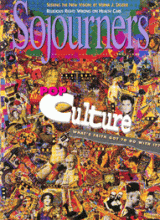Many of my comrades regard Mozart as another dead white male who wrote dainty, high-priced irrelevancies. It's true that rural peasants had another music. But Mozart produced part of the popular culture of 18th-century European cities; even the urban poor heard it in the public parks Joseph II gave to his people. His music, grappling with the contradictions of his time, resonates for me in mine.
As an activist in the civil rights, anti-war, and anti-nuclear weapons movements, I found reassuring clarities. I knew how the world should be, felt able to remake it. Mozart must have felt that way about Josephine social reform. But he had second thoughts and so do I. It's not so clear now that my earlier certitudes are intellectually and practically adequate.
Mozart, says author Nicholas Till, thought his mother-in-law would " 'see the opera but not hear it,' a clear hint at the distinction in Mozart's mind between the outer story and its inner truths, ultimately conveyed by the music." For me, too, the outer story-a world of casual mayhem and hateful tribalism-requires another look at inner truths.
Read the Full Article

